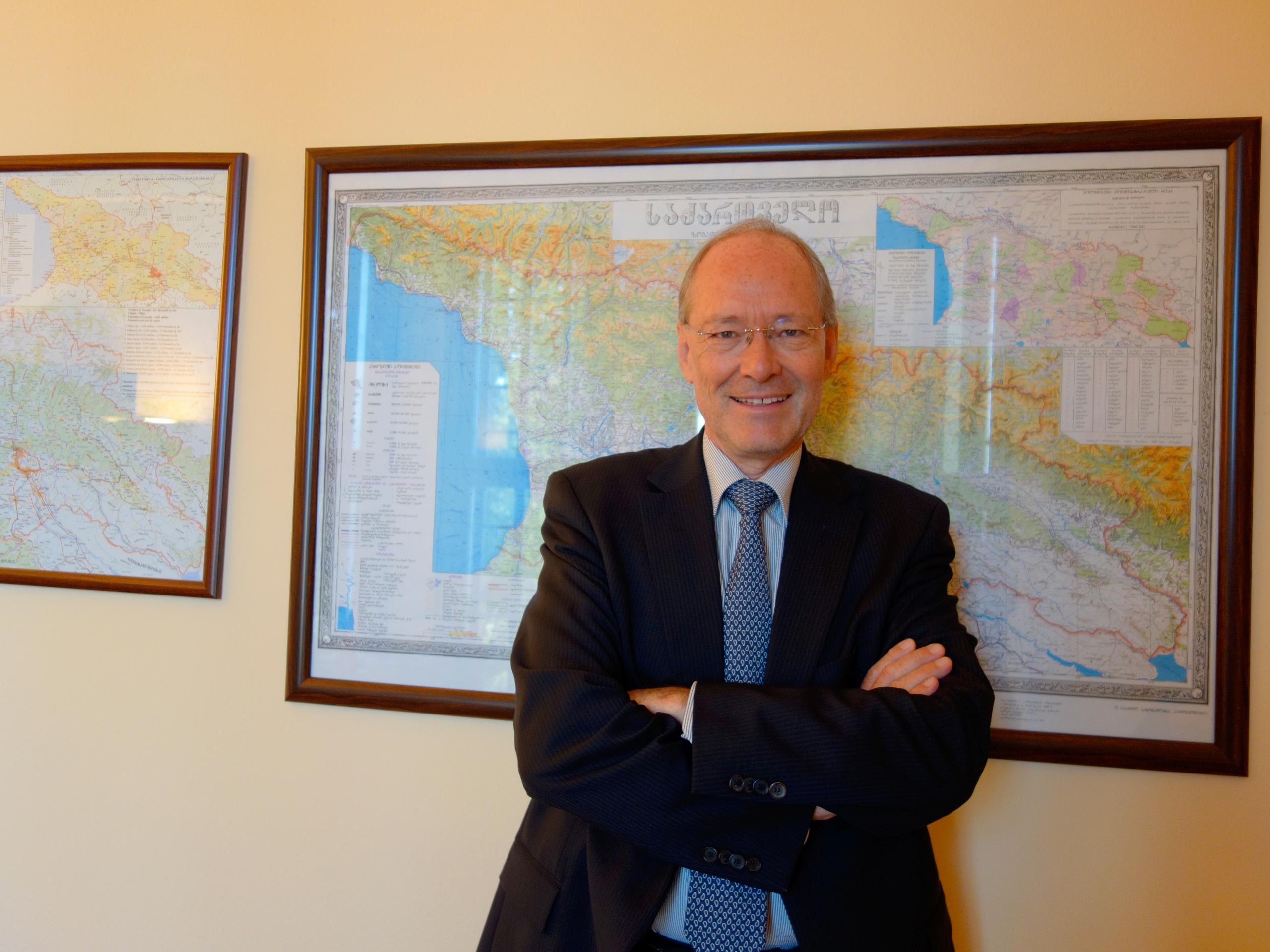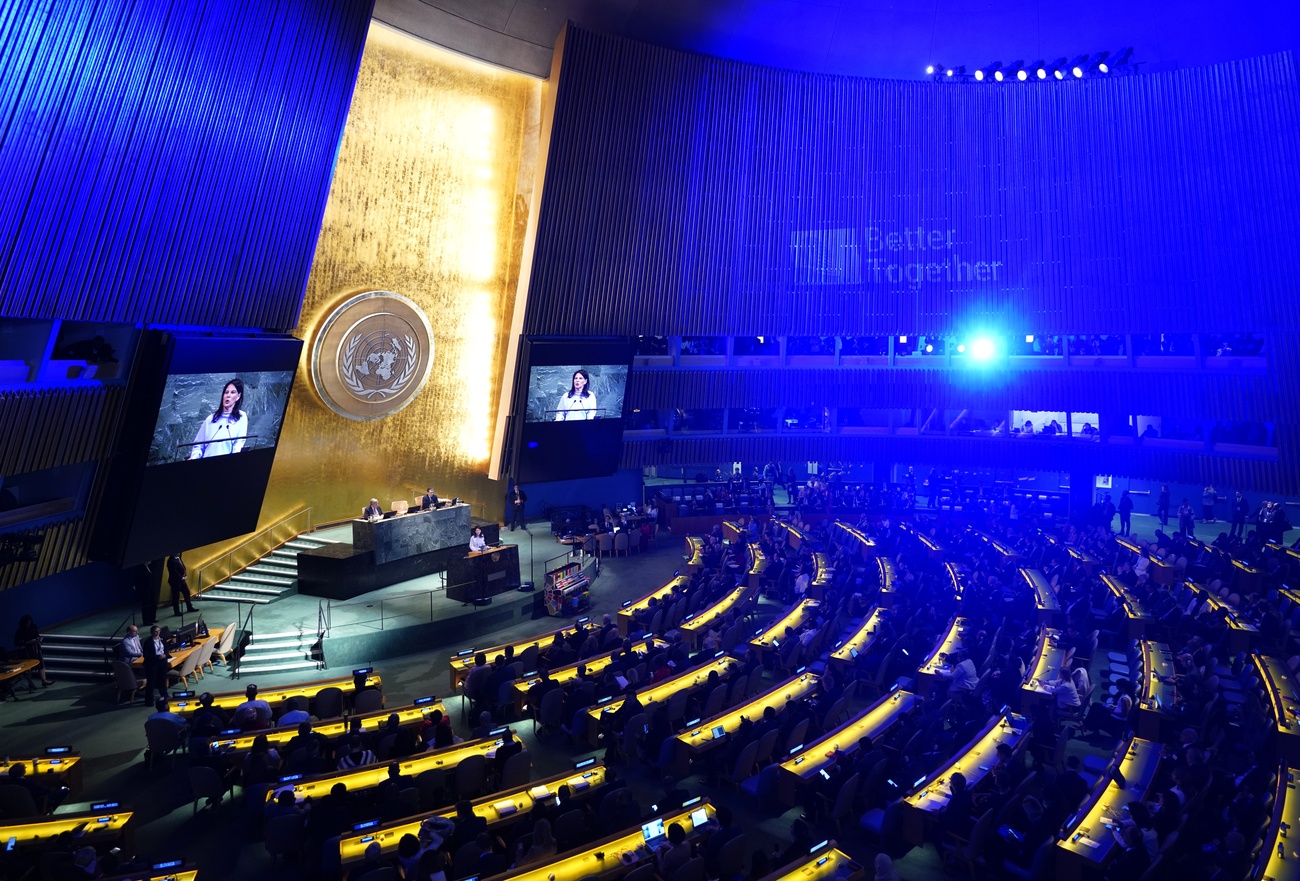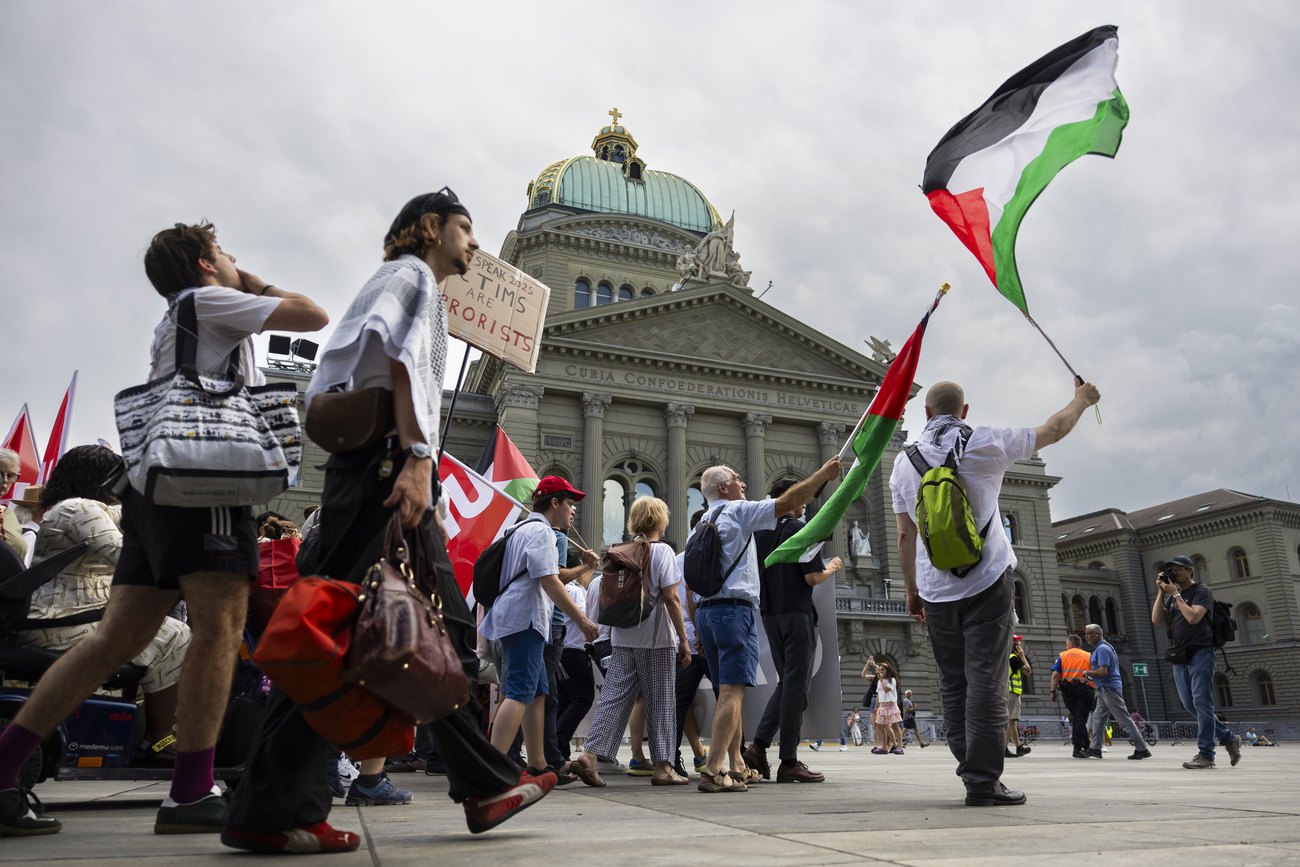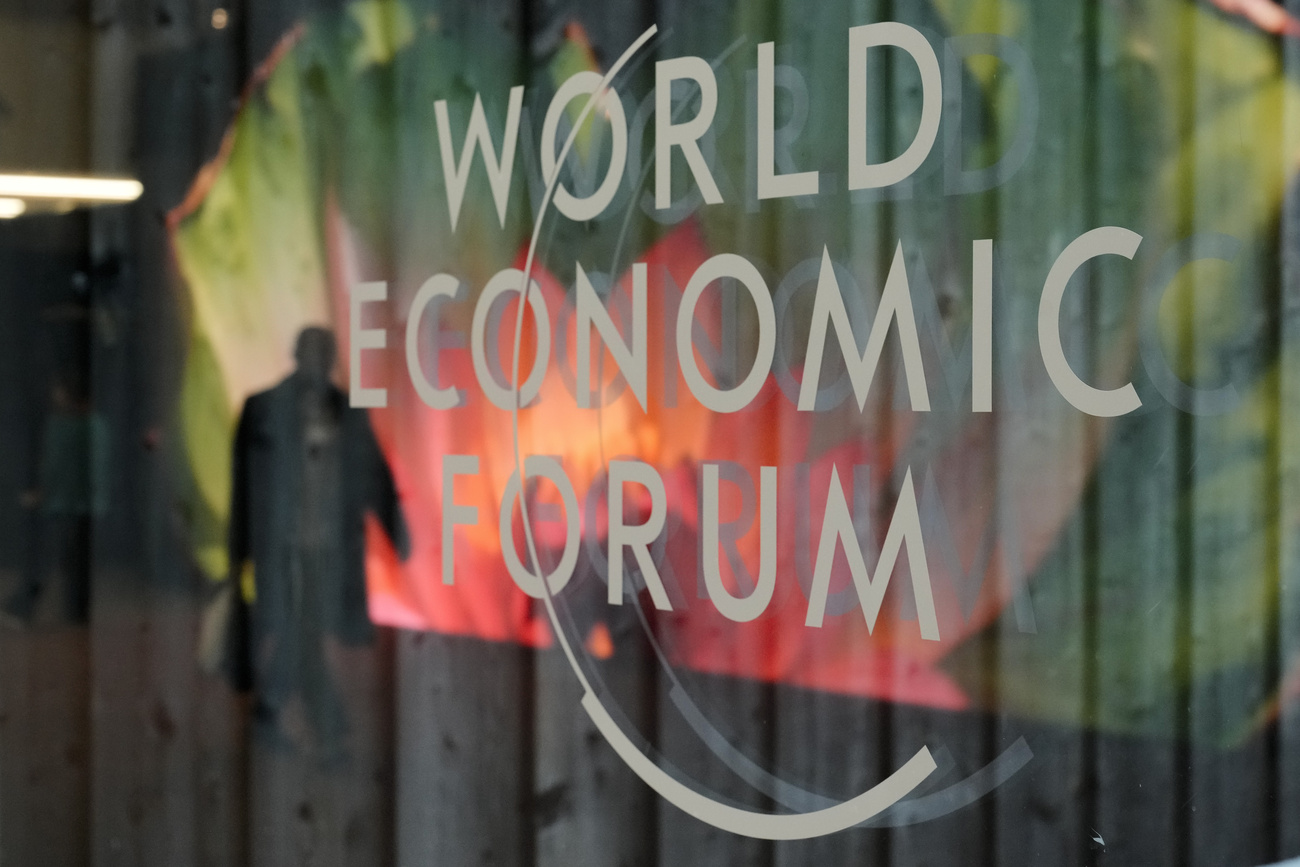
‘Switzerland is an ideal for many Georgians’

Georgia is flirting with the West and trying to come to terms with its big neighbour Russia while struggling with economic problems and territorial conflicts. The Swiss ambassador in Tbilisi – an envoy between the Georgians and the Russians – sees a fragile stability that must continue for democratisation and economic recovery to take hold.
In 2009, after the armed conflict over the breakaway Georgian regions of Abkhazia and South Ossetia, Switzerland took care of Georgian diplomatic interests in Moscow and Russia’s in Tbilisi.
Günther Bächler, the Swiss ambassador in Georgia, meets once a week with the Russian Section (formerly the embassy) to discuss pending matters. He handles official correspondence between the two countries, addressing issues such as diplomatic protection, pension statements, Russian refugees imprisoned in Georgia and other questions that are normally dealt with directly between countries.
swissinfo.ch: Russia signed economic and military accords with Abkhazia and South Ossetia in 2014 and 2015. What does that mean for Georgia?
G.B.: A resolution to the conflict will depend heavily on the status. Because both regions are recognised as autonomous states by Russia but not by Georgia, the search for a solution will take longer. The two accords for strategic partnerships envisage close bonds for Abkhazia and South Ossetia with Russia.
Unresolved conflicts always have a big impact on the affected countries, on their society and economy. We can say that this conflict is responsible for the fact that neither Georgia, Abkhazia nor South Ossetia can develop as societies [the way they could have] without it.
swissinfo.ch: About half a million of the 3.7 million people in Georgia are internal refugees from these two regions. How does Georgian society cope with this refugee problem?
G.B.: The refugee situation has caused few acute conflicts in Georgia, even though the expellees profit from social housing projects and sometimes even secure better housing than the local population. That is why with our housing projects, which have been funded by humanitarian aid from Switzerland, we have always taken care to have a social mix of expellees and deprived local population groups.
Conflicts between this large number of expellees and the government are more common. Many of them, even those who came in the first wave of refugees in 1992, still do not have homes. They are still living in accommodation they moved into when they fled.
swissinfo.ch: Georgia signed an Association and Free Trade agreement with the European Union last year and is seeking to join NATO – a development that can hardly be reassuring for Russia.
G.B.: Georgia is a country that looks to the West, if we believe the opinion polls. My observations would confirm that tendency. A majority of Georgians feel European and want to be a part of Europe.
At the moment there is a sense of being in a vacuum, as there is no stable security guarantee from either side. The example of Ukraine has made clear that it can be difficult to belong to no alliance and yet to have no internationally guaranteed neutrality to rely on.
The Georgian government and population want to steer this Western course and profit from economic cooperation and security guarantees, but at the same time they want to nurture pragmatic relations with Russia. It is a balancing act that is understandable given [Georgia’s] geographical and geostrategic position.
swissinfo.ch: Georgia is an agricultural country but has to import much of its foodstuffs. Why the low productivity?
G.B.: It has partly to do with the post-independence collapse of the Soviet system, which was never replaced with a new system. Many workers lost their jobs at collective farms, they were privatised and the land distributed in parcels of one or two hectares, which resulted in small family businesses for subsistence farming. It was a solution to the social problems in rural areas but has not created a modern and efficient agricultural industry.
It is only in the last few years that the government has addressed agricultural policy and is trying to overcome these deficits with a comprehensive strategy which even encompasses organic farming. It wants to try to combine strips of land into bigger enterprises of five to ten hectares and to promote cooperatives. The goal is to increase productivity and self-sufficiency in agriculture.
The Swiss Office for Development and Cooperation is active in this area. The focus of the Swiss cooperation is not just agriculture; we would like to create value chains in rural areas to contribute to economic growth.
swissinfo.ch: In a Georgian newspaper interview, you voiced constructively critical views about Georgian politics, something unusual for an ambassador to do. Was that appreciated by the government in Tbilisi?
G.B.: In Georgia it is not so unusual, because the country is very open to Western support, which entails friendly criticism as well. Through its protecting power mandate but also through the partnership between the governments, Switzerland has a certain special role in a positive sense. Switzerland is an ideal for many Georgians; the EU is a must.
So when I am critical about things, it is usually in background discussions with various government representatives, with partners, and that is highly valued. We stand for democracy, human rights, the rule of law, the fight against corruption, and a free market economy. These areas are important if you want to deepen economic ties and increase investment and trade. Discrete diplomacy doesn’t always work; sometimes you have to be more explicit.
swissinfo.ch: In the summer you are leaving your post in Tbilisi. How do you see the future for Georgia?
G.B.: I have always been fundamentally optimistic about Georgia’s potential to develop, because it is a very lovable country with a lovable people in a difficult context, a difficult region, with many influencing factors from the North, the South, the East and the West. We will see whether it will develop successfully in the next ten years.
What it needs are a European perspective and ideas for a new European security framework. I witnessed the end of the Cold War in 1989 and contributed to it actively in Berlin. I hope that, 25 years later, we are not going to experience another division of Europe.

In compliance with the JTI standards
More: SWI swissinfo.ch certified by the Journalism Trust Initiative




























You can find an overview of ongoing debates with our journalists here . Please join us!
If you want to start a conversation about a topic raised in this article or want to report factual errors, email us at english@swissinfo.ch.